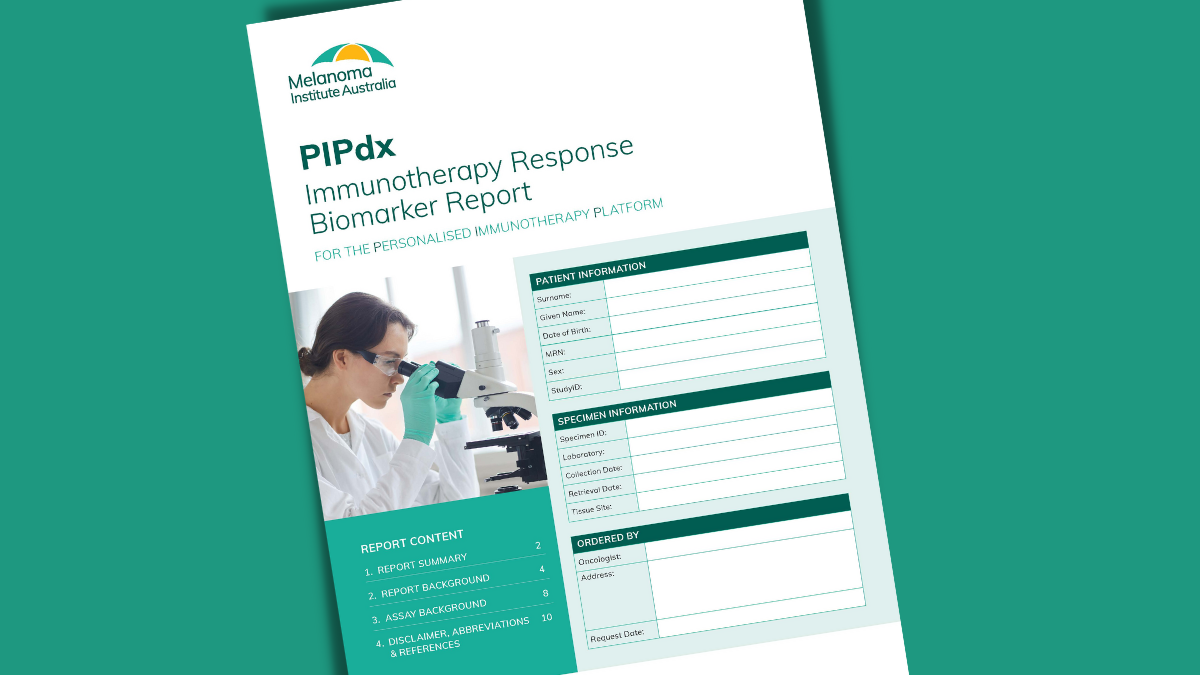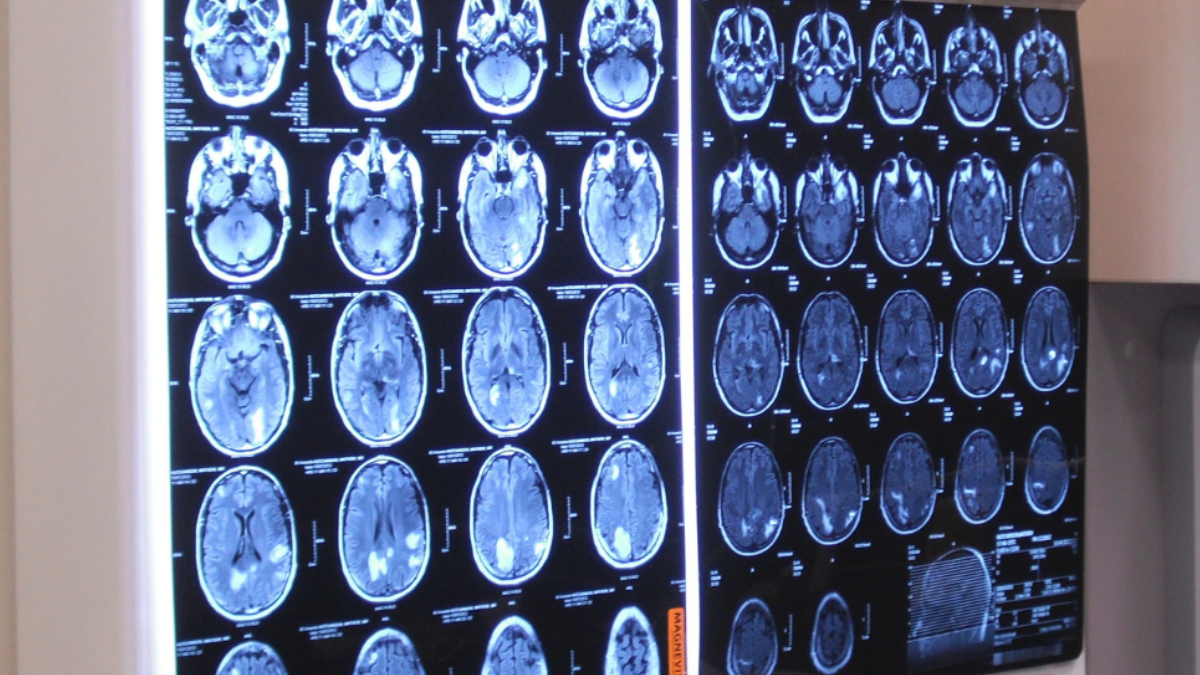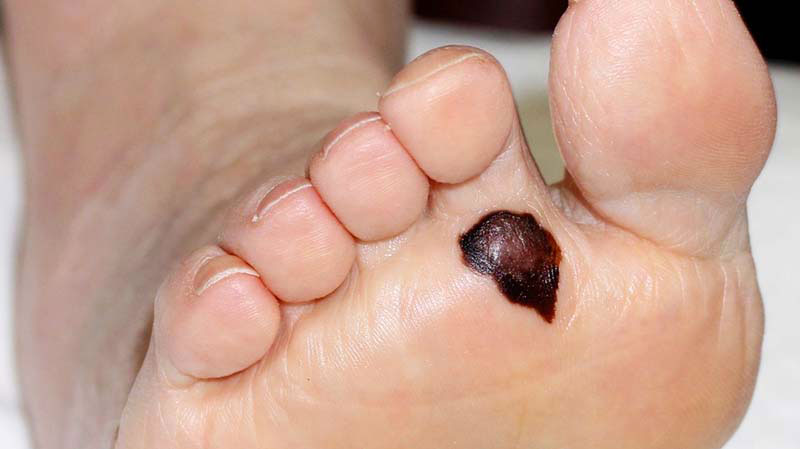Developing a screening technique to provide clinicians with rationale for selecting a certain drug treatment regime.
Immunotherapy has saved countless lives in advanced melanoma. However, approximately 50% of people do not respond to treatment. One of the biggest barriers to improving survival rates is drug resistance.
New research from Melanoma Institute Australia (MIA) has given us a greater understanding of how cancer becomes resistant to immunotherapy. Immunotherapy works by harnessing the body’s own immune system to destroy melanoma cancer cells.
The researchers previously discovered that melanoma tumours that are resistant to immunotherapy often stop expressing basic protein machinery called antigen-presenting molecules (specifically MHC-I and MHC-II). These molecules make the tumour visible to the immune system so that they can be destroyed.
Using tumour biopsies from MIA’s BioSpecimen Bank, the researchers developed a technique that can screen for the presence of these molecules before patients commence treatment, providing clinicians with an evidence-based rationale for selecting a certain drug treatment regime.
Combination immunotherapy (e.g. nivolumab + ipilimumab) is a more effective treatment than a single-agent immunotherapy (e.g. pembrolizumab or nivolumab alone), however the side effects of combination treatment are more common and can often be intolerable.
“This research provides a means of selecting the most effective immunotherapy for each patient,” said the study’s senior author Professor Helen Rizos. “Patients with high MHC-I are likely to benefit from the less-toxic single-agent treatment, whereas patients with low MHC-I may require combination immunotherapy.”
“We now want to build upon this ground-breaking research and are working to overcome this resistance mechanism so tumour cells are more visible to the immune system,” said study author and Co-Medical Director, Professor Georgina Long AO. “When we can do this, we may overcome resistance to immunotherapy.”
Publication:
Shklovskaya E, Lee JH, Lim SY, et al. Tumor MHC Expression Guides First-Line Immunotherapy Selection in Melanoma. Cancers 2020, 12, 3374.





